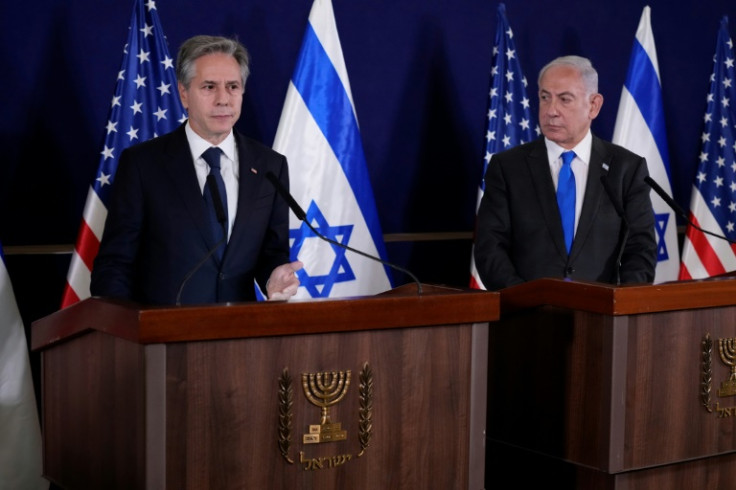Netanyahu Publicly Rejects US Call For Two State Solution
Netanyahu sparks outrage by rejecting the US call for a new Palestinian government in Gaza as a step towards a two-state solution and an end to the conflict.

Appearing in a televised conference on Thursday, Israeli Prime Minister Benjamin Netanyahu sparked outrage when he rejected the US's call for a "revitalised" Palestinian Authority in Gaza.
The White House, Israel's closest ally, also urged Israel to reduce the intensity of its catastrophic bombardment of the Gaza Strip.
As the death toll continues to mount in the Palestinian territory, including the Israel-occupied West Bank, the US said that the internationally recognised Palestinian Authority should be updated and returned to Gaza after the conflict.
For more than 100 days, the Israeli Defence Force (IDF) has conducted a fatal assault on the besieged enclave which, according to the Hamas-run Health Ministry in Gaza, has killed almost 25,000 Palestinians.
According to the IDF, the death toll in Gaza includes 9,000 militant members of Hamas who were successfully targeted and "eliminated".
The internationally recognised Palestinian Authority refers to the Palestinian government that was ousted from the Strip when Hamas rose to power in 2007.
President Mahmoud Abbas is the leader of the Palestinian Authority cabinet and a member of the Fatah Party, a political group that opposes Hamas.
For more than a decade, although he is limited to having partial control over the West Bank, Abbas has maintained a relatively peaceful relationship with Netanyahu.
However, in the past, both Netanyahu and Abbas have been named as "increasingly unpopular" leaders who are reluctant to hold a fair election. As a result, the pair have each ruled their territories for more than a decade.
The US continued to note that once the governing body of the West Bank replaced Hamas, the proscribed terrorist group that launched an unprecedented attack on Israeli civilians on October 7, the world could work towards the establishment and rebuilding of a Palestinian state.
Antony Blinken, the US Secretary of State, told reporters that the two-state solution should be considered the best way to unite moderate Arab nations while isolating Iran – Israel's nemesis that trains and funds Hamas.
While appearing at the World Economic Forum in Switzerland this month, Blinken said that the "pathway to a Palestinian state" ensures that Israel will receive "genuine security" when the conflict finally halts.
In the televised conference, Netanyahu rejected the calls and declared: "We will not settle for anything short of an absolute victory."
The right-wing Prime Minister sparked tensions with the White House when he said that Israel "must have security control over the entire territory west of the Jordan River".
"This is a necessary condition, and it conflicts with the idea of (Palestinian) sovereignty. What to do? I tell this truth to our American friends, and I also stopped the attempt to impose a reality on us that would harm Israel's security," he added.
According to spokesperson John Kirby, US President Joe Biden responded to Netanyahu's orthodox claims by reassuring the world that the US would "not stop working" towards a two-state agreement.
"We obviously see it differently," Kirby added.
The public dispute comes as a shock since the US has supported Israel's right to defend itself and abstained from voting for a ceasefire since Hamas kidnapped and killed more than 1,400 people.
Amongst those kidnapped, is baby Kfir Bibas who was named as the youngest Israeli victim after he was abducted by Hamas and taken into Gaza at just nine months old.
With his whereabouts unknown, it is thought that the young child remains captured by Hamas.
Yesterday, marked Kfir Bibas' first birthday.
© Copyright IBTimes 2024. All rights reserved.






